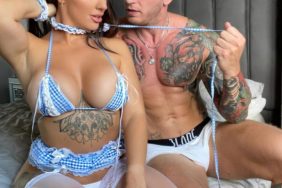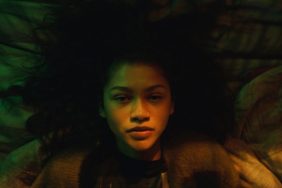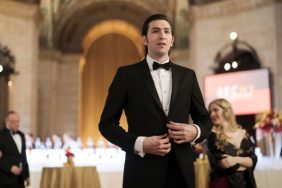Photo: Noah Kalina.

Everyone recovers from breakups in their own way. Some go on a sex spree. Others withdraw from dating altogether. For 30-something author Emily Witt, the end of a relationship in 2011 presented an opportunity for sexual experimentation. From orgasmic meditation to live web cams to Burning Man, Witt jettisoned her inhibitions and dove into the underbelly of modern day carnality, a journey detailed in her new book Future Sex. Though some of the activities described therein are disconcerting (watching a woman get anally fisted on-camera, doing whip-its and making out at a sex party), Witt manages to maintain an even-keeled, journalistic attitude throughout, providing a nonjudgmental, risk-free gateway to new kinds of sexual expression.
We spoke to the Brooklyn-based Witt about her experiences with porn, polyamory and psychedelic drugs.
Crave: What prompted you to investigate the topic of sex?
Emily Witt: It was a few things. First, I read this book called Thy Neighbor’s Wife by Gay Talese, which is a cultural history of the sexual revolution. It came out in 1981. I wanted to recreate that about Internet sexuality, post-1990 in our cultural history. When I started reporting, I realized it was a much more personal story than I’d intended and I was encouraged to turn it more personal by my editor, so it went more in that direction.
Were you looking to educate, to answer some questions for yourself, or did you have some other goal?
For all of my friends, contemporary sexual ethics and rules and dating rituals were causing a lot of confusion and anxiety and I just wanted to document that. I didn’t have a thesis, really, going into it. And then it also became a personal question for me of how to manage your sexual freedom. How do you feel happy and fulfilled and connected if your life doesn’t fit into the traditional model of relationships? At the time when I started writing the book, I was newly single. Here were all these possibilities that I’d always kind of ignored because I thought of myself as not a certain kind of person and I realized I was restricting my own freedom for no reason.
How do you feel about screens, technology, and social media? Are we getting any meaningful connection through these mediums? Or are things getting worse in the relationship department because of them?
I think a little bit of both. On the one hand, we’re so lucky that we have these technologies that connect us with people that have very specific interests that you would have had a difficult time finding before. Now we’re a much more mobile population; you move to a new city, you don’t know anybody, you have this efficient way to meet tons of people really quickly who are similarly looking for friendships or sex or a relationship.
Also: Sean Penn May or May Not Be Author of New Audiobook
On the other hand, it means you’re facing a lot more rejection because you’re meeting with strangers all the time and the statistical probability that you’re going to like them is probably pretty low, whereas if you went to a party, you would know who you’re interested in.
Maybe you’re less present and sometimes these technologies make us feel more alone instead of more connected because you have a sense that everyone is having more fun or living more interesting lives.
One of the things you tried and stuck with was porn. What has porn taught you about sexuality and how has it been beneficial?
I waited for a long time [to watch porn] because I thought of it as a very masculine space. I felt like the images were not for me. I found them upsetting or gross. But then I looked into the reasons I felt that and I realized that porn could be a place of possibility for me. I realized that the things that are sexy in porn are so different than the things that we’re taught are beautiful. I left the experience with a little bit more confidence, a sense of reassurance that somebody would always be sexually attracted to me no matter what happens, and a greater understanding that what is sexy to another person is not necessarily beautiful, and I found that kind of liberating.
You saw and experienced a lot of things during the time period in the book. Was there anything that you regret doing? Anything repulsive that you wish you hadn’t seen?
There were definitely some moments of discomfort but, no. That’s what I was scared of going in, that something would be emotionally traumatizing in some way and change me irrevocably. I realized I could explore these things and talk to people and it didn’t mean I would lose myself or get hurt. Honestly, the things that were harder for me to deal with were bad Internet dates that were really banal. That’s the kind of thing that would depress me.
What role do drugs play in sexual experimentation? They seem to go hand-in-hand in the book.
I had never tried psychedelic drugs before I started working on this book. I had tried alcohol, obviously, and I had tried cocaine a couple of times. When I started interviewing people for the book, they would mention an important moment or a breakthrough in their relationship that happened while on mushrooms or LSD, so I became interested in trying those substances.
I think it also had to do with me trying to understand what happened post-1960s in America and how we’d gone from a country that had this great sense of experimentation to the one I grew up with in the ‘80s which was a little more conservative and conformist including in relation to drugs. I thought I inherited a certain kind of sexuality from my parents: I would be experimental in my teens and 20s, I would smoke a little pot, I would date, but eventually I would settle down and get married. Similarly, with drugs, I wouldn’t do anything too crazy because I was a good person.
Trying these psychoactive substances, for me, had a really positive effect in terms of self-knowledge and being open to other ways of thinking.
Do you felt that acceptance of things like polyamory depends on geography? You reported from the East Coast and the West Coast for this book, but you’re from Minnesota, as am I, and here it seems more “acceptable” to have an affair than to have an open marriage.
I would say the same is true for New York as in Minnesota. Among my friends, at least, it’s just not something that people do. California has this tradition of being more open in these areas, but I also think these communities do exist in every city. Certainly in California, you’d find a bigger, more open community than you would in Minnesota or New York or anywhere on the East Coast.
I think it’s a certain kind of person who feels comfortable declaring a lifestyle in that way. I think you have to be a pretty confident and emotionally stable person for that to work for you.
Over the course of the book, you have a fair amount of sex but there’s this undercurrent of joylessness to it. It didn’t seem very pleasurable. Was that true for you or did I misread it?
Reviewers and people have been pointing it out to me. I think I was just really reluctant to talk about myself too much, so I kept some stuff out about what I was doing in those years. I was working on the book from 2012 to 2016 and after I’d watched all this porn and gone to do all this stuff, 2013 was this year where everything opened up for me and I was having more happy and successful casual relationships than I’d ever had. Suddenly, it was easy for me to meet people and have fun and I learned how to have intimacy in a casual relationship, where before I felt like I had to run away in the morning. I regret not writing about that. Maybe I can write another edition.
How do you think one finds more satisfaction in sex? Is it through experimentation? Intimacy? A steady partner?
Not that you have to suspend all of your desires for a long-term relationship, but you do need to live in the present. The second I used to meet somebody, I’d feel really anxious about whether he was going to be my boyfriend or not and that would affect the sexual experience. I learned that some of the people I really like having sex with are not the ones I want to be in a relationship with and that the two things are related but don’t need to be inextricably linked. It was about teaching myself how to feel less embarrassed about my body, less worried about whether I’m pleasing to another person. It’s like an intellectual practice, being more open, talking about what somebody likes, what I like, just being less repressed.








